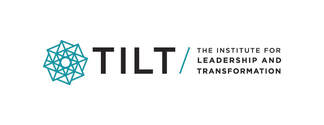An online workshop over three consecutive days
Next workshop to be presented: 23 - 25 March 2022
Background
Being able to make sense of and effectively respond to the conscious and unconscious dynamics of small groups are essential components of leading, managing and consulting to teams and organisations. This workshop will provide opportunities for the in-depth study of the dynamics of small groups through experience in the here-and-now and joint reflection. Insights from the fields of psychoanalysis, open systems theory, complexity theory and group relations theory will be integrated with our experiential learning. Real life case studies from participants’ own work environments will be used for application.
Who should attend?
This module is specifically aimed at leaders, managers and consultants who want to improve their ability to become aware of and work with the unconscious dynamics of teams and other small organisational sub-systems such as committees, supervision groups, coaching groups etc. Participants of the Programme will be drawn from a diversity of cultural and professional backgrounds, client bases, industries and sectors. Participants will have proven experience of working with teams and other small groups, plus be able to demonstrate a willingness and a curiosity to explore more deeply the role of dynamics in small group processes.
How will you benefit?
The module will assist you to:
Key focus areas
The module incorporates a variety of components:
Module co-directors
Fee
Discount
Application process
Being able to make sense of and effectively respond to the conscious and unconscious dynamics of small groups are essential components of leading, managing and consulting to teams and organisations. This workshop will provide opportunities for the in-depth study of the dynamics of small groups through experience in the here-and-now and joint reflection. Insights from the fields of psychoanalysis, open systems theory, complexity theory and group relations theory will be integrated with our experiential learning. Real life case studies from participants’ own work environments will be used for application.
Who should attend?
This module is specifically aimed at leaders, managers and consultants who want to improve their ability to become aware of and work with the unconscious dynamics of teams and other small organisational sub-systems such as committees, supervision groups, coaching groups etc. Participants of the Programme will be drawn from a diversity of cultural and professional backgrounds, client bases, industries and sectors. Participants will have proven experience of working with teams and other small groups, plus be able to demonstrate a willingness and a curiosity to explore more deeply the role of dynamics in small group processes.
How will you benefit?
The module will assist you to:
- Conceptualize and experience small groups as systems;
- Make sense of the dynamics between the small group, its immediate organisational context and the wider social context;
- Explore and work with the dynamics of small groups and leadership in the small group context;
- Deepen your sense of curiosity and creativity in facing leadership challenges in conditions of uncertainty, turbulence and change;
- Gain insight into your own leadership dynamics, the dynamics of the groups in the programme and how these dynamics influence your team's and organisation’s performance.
Key focus areas
The module incorporates a variety of components:
- Theoretical inputs covering the fields of psychoanalysis, open systems theory, group relations theory, leadership theory, organisational theory and complexity theory;
- Learning from the here-and-now experiences of the programme itself;
- Working with dreams as a means of understanding organisational systems;
- Small Action Learning Sets for the application of the learning to the participants’ own organisations.
Module co-directors
- Dr. Eliat Aram, CEO: The Tavistock Institute of Human Relations; Applied Complexity theory educator; Chartered Psychologist, BPS (British Psychological Society); Gestalt psychotherapist and supervisor, Metanoia Institute, London; Member, OFEK (The Israeli Association for the Study of Group and Organizational Processes), Israel.
- Prof. Michelle May, Clinical psychologist: HPCSA (Health Professions Council of South Africa); Professor: Department of Industrial and Organisational Psychology, UNISA (University of South Africa); Programme manager: Doctorate in Consulting Psychology; Director (2002 to 2014): Robben Island diversity experience (RIDE).
Fee
- R 14 145 including VAT
Discount
- Early bird discount of 10% for all applications (forms plus deposits) received before Monday, 30 August 2021.
- Additional 10% discount to independent practitioners, full-time students, academics and participants from the nonprofit sector.
Application process
- Spaces are limited, so apply as soon as possible.
- Applications close: Wednesday, 9 March 2022
- Submit your application online or download the PDF form and email your completed form to our Programme Administrator, Kirsten Zellmer
- All applications should be accompanied by a 50% deposit, which is non-refundable except in the event that an application is unsuccessful.
- Eligible applications will be taken on a first-come basis, taking into account the programme directors’ selection policy of aiming to achieve a diverse and balanced participant group.

